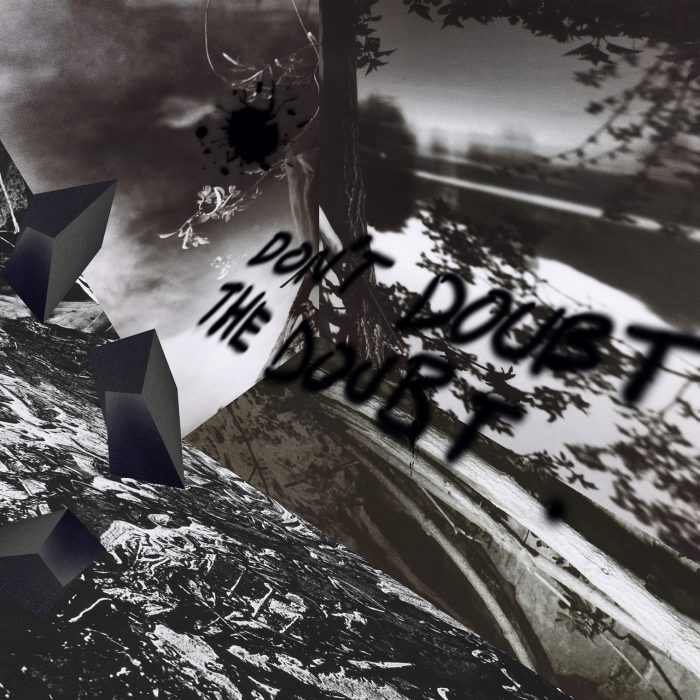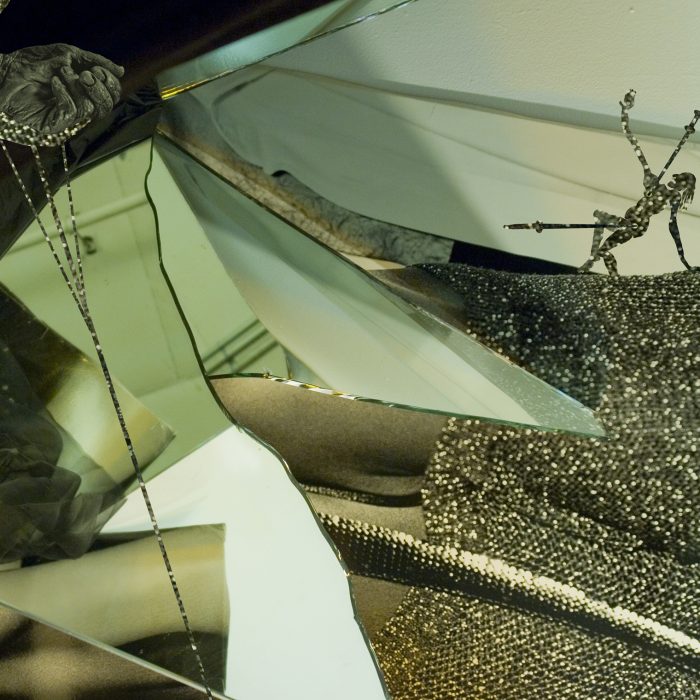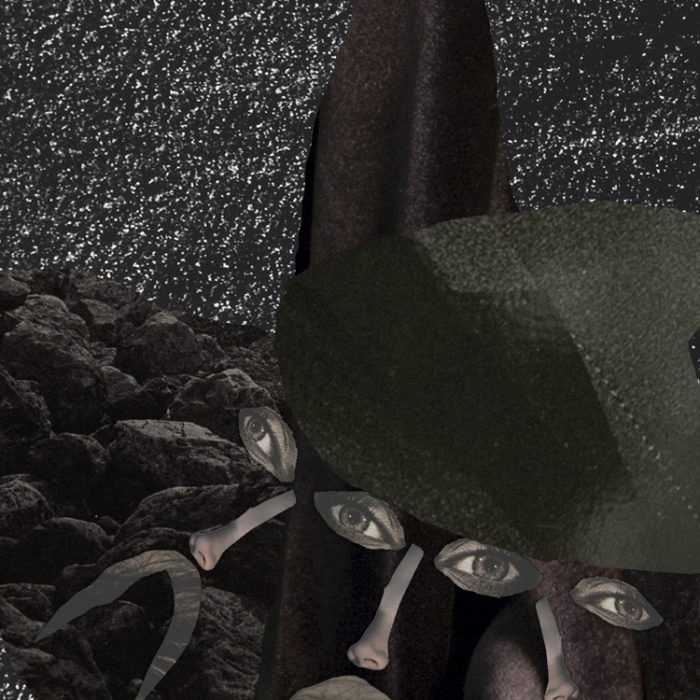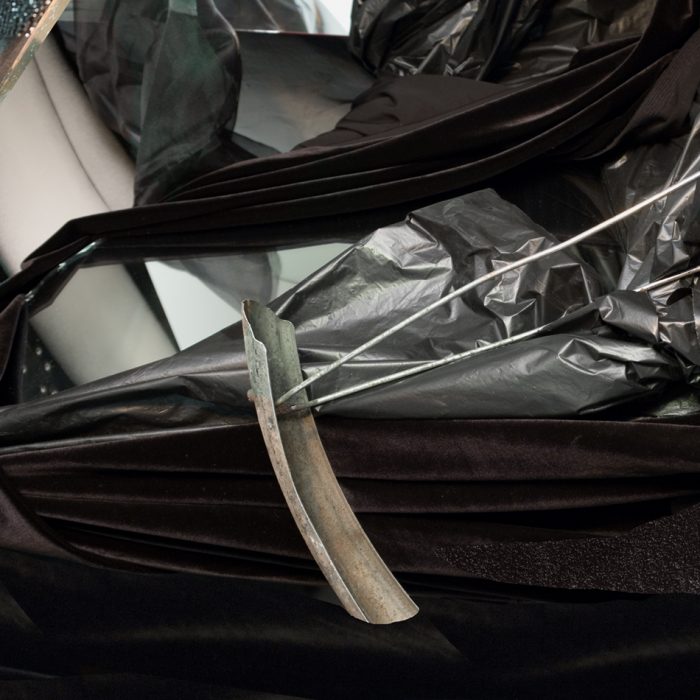Family, Religion, State
FRS is a construct originating in a geometric, equilateral—or a regular triangle. It has equal sides, equal angles, and equal altitudes. But what happens when this equilibrium is broken?
FRS is more complex than a regular triangle. It’s neither balanced nor equal. True to life, FRS is complicated. It’s muddy, slushy, runny, it’s messy. To be even more specific, it has frayed edges, like a Penrose triangle. FRS is an opportunity involving tangled hierarchies, which are embodied in impossible spaces, like the Penrose triangle.
In this body of work, I examine ideas of co-dependency as they translate from public to private and from national to personal. I’m motivated by the impossibility of coexistence between family, religion and state, and more specifically, in the impossibilities religion has created in our lives.
Recent technological advancements have changed our lives rapidly. Information proliferation has shaken us to the core. It has also contributed to the end of Empire, and the unleashing of dark forces. These forces take form in religious separatist attitudes and orthodoxy with distinct fascist overtones. Religion, which has the potential to offer a sense of community through traditions, and even meaning, has become a divisive force in our downfall. Ideologies and policies are asserted in the name of God.
In my previous collages the idea of a personal codependency manifested itself as a trap, crutch or as a state of mind, and was occasionally implicated with religious undertones. In this body of work, ideas from the Enlightenment and the Middle Ages are entwined and become spatially impossible compositions. Images such as the “Hymns of the Adversary” or “medieval Vasisthasana” draw on Hans Holbein’s Medieval allegory the Dance of Death. While the blasphemous act of appropriating the symbol of the Holy Trinity to make the image “witch” presupposes a question built on the fruits of Enlightenment thought.
…










